Citizen Science
Parallel Session
3rd Shaw-IAU Workshop on Astronomy for Education
Session timeblocks
Tuesday Oct. 12, 2021
UTC: 8 p.m. -
9:30 p.m.
Wednesday Oct. 13, 2021
UTC: 12:30 p.m. -
2 p.m.
Schedule
-
Citizen Science with the Zooniverse
Tuesday Oct. 12, 2021
UTC: 8 p.m. - 8:25 p.m.Wednesday Oct. 13, 2021
UTC: 12:30 p.m. - 12:55 p.m.The vast wealth of astronomical datasets produced by modern surveys - and our shared access to the sky - make astronomy a natural home for citizen science projects which provide participants with authentic experiences of scientific practice. In this talk, I will draw on examples both historical and contemporary from the Zooniverse, to ask what makes an effective citizen science project and how such projects can be incorporated in broader engagement programs. I will conclude by highlighting the new classroom.zooniverse effort to bring data-rich, citizen science-based, classroom experiences to introductory undergraduates across a wide array of disciplines.
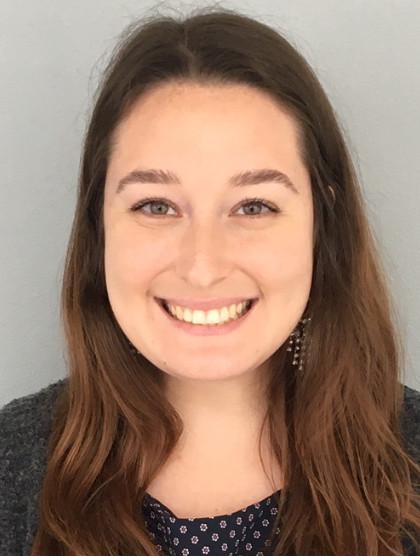
Molly Simon (Arizona State University)
Coauthors: Laura Trouille (Adler Planetarium, Northwestern University), Chris Lintott (University of Oxford), Isaac Rosenthal (University of Massachusetts - Boston), Ed Prather (University of Arizona)
For more information about this talk click here
-
#RADatHomeIndia a Collaboratory model of citizen science research
Tuesday Oct. 12, 2021
UTC: 8:25 p.m. - 8:35 p.m.Wednesday Oct. 13, 2021
UTC: 12:55 p.m. - 1:05 p.m.RAD@home ( #RADatHomeIndia https://radathomeindia.org/ ) is a nationwide, Inter-University Collaboratory of professional astronomers, trained citizen scientists and technical/administrative facilitators. It is the only Indian citizen science research platform in astronomy. Nearly 30 institutes and similar number of professionals have contributed to its growth since 2013. In a "flying pyramid" model, scientists and facilitators are its wings, and large number trained citizen-scientists (e-/i-astronomers) at multiple levels of expertise make the multi-layer pyramid. It has 150 e-astronomers, 1000 i-astronomers, 2500 active learners, 4700 total members. This way citizens achieve GMRT telescope time, co-authorship in papers on galaxy evolution and MS/PhD selections abroad or all round growth.
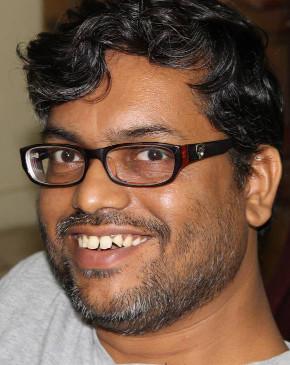
Ananda Hota (UM-DAE Centre for Excellence in Basic Sciences, Mumbai, India & RAD@home Astronomy Collaboratory, India)
For more information about this talk click here
-
Galaxy Cruise
Tuesday Oct. 12, 2021
UTC: 8:35 p.m. - 8:45 p.m.Wednesday Oct. 13, 2021
UTC: 1:05 p.m. - 1:15 p.m.We present an on-going citizen science project, GALAXY CRUISE. GALAXY CRUISE aims to identify interacting galaxies based on imaging data taken with the Subaru Telescope, and it differs from previous citizen science projects in a few key aspects; unprecedented image quality, efficient tutorial based on public experiments, gamified user interface, and two-way communications. We believe that even elementary school students will find GALAXY CRUISE interesting. More than 1.5 million classifications have been collected in 1.5 years after the launch of the project, and interesting results are being unveiled and are shared with the participants. We also discuss future prospects of GALAXY CRUISE, including machine-learning.
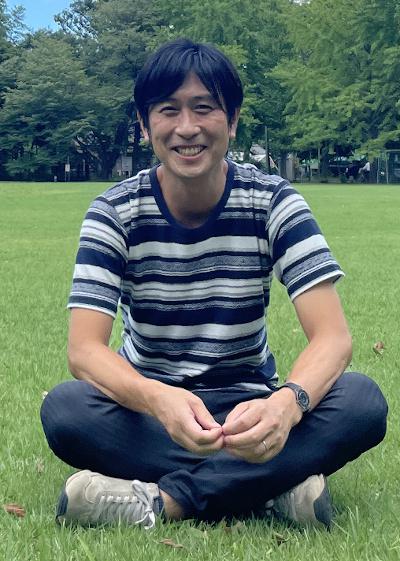
Masayuki Tanaka (National Astronomical Observatory of Japan)
For more information about this talk click here
-
NASA's Citizen Science Program
Tuesday Oct. 12, 2021
UTC: 8:45 p.m. - 8:55 p.m.Wednesday Oct. 13, 2021
UTC: 1:15 p.m. - 1:25 p.m.What would you do with help from 10,000 volunteers? Would you scour a complex data set, quickly explore many out-of-the-way places, or simply harness the creativity of that many unique human minds? That’s what citizen science is all about: imagining new possibilities, solving hard problems, and at the same time, sharing your love of science far and wide. I’ll give an overview of NASA’s citizen science program, tell the stories of remarkable citizen scientists and citizen science projects, and share best practices gleaned from the NASA community.
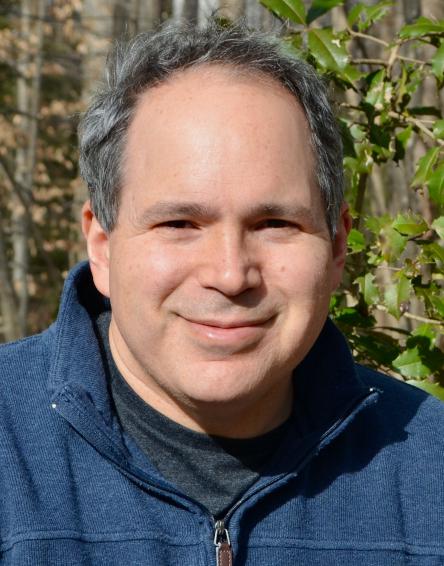
Marc Kuchner (NASA)
For more information about this talk click here
-
Boosting Online Community to Drive Virtual Engagement
Tuesday Oct. 12, 2021
UTC: 8:55 p.m. - 9:05 p.m.Wednesday Oct. 13, 2021
UTC: 1:25 p.m. - 1:35 p.m.Humans are social creatures, and while we all vary in how much we do (and do not!) want to interact, everyone wants a place to belong. With CosmoQuest, we enhance citizen science engagement by making sure those who join know they are welcome and will be supported no matter who they are. This is accomplished by: having a leadership team that is open about their disabilities and differences; using the pronoun “they” until told otherwise; facilitating non-science conversations around topics like LGBTQ+ that impact engagement; providing moderated places where people can hang out; and more. In this workshop, the structure for designing a community will be laid out, and how to emphasize each aspect in your own community will be discussed.
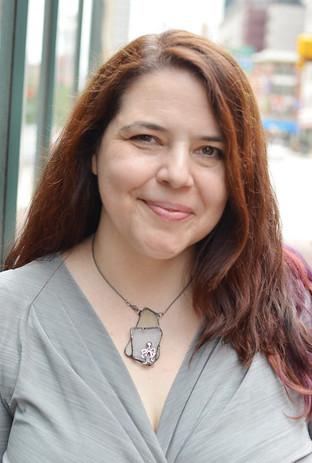
Pamela Gay (Planetary Science Institute)
For more information about this talk click here
-
Discussion Panel: Citizen Science
Tuesday Oct. 12, 2021UTC: 9:05 p.m. - 9:30 p.m.
Wednesday Oct. 13, 2021
UTC: 1:35 p.m. - 2 p.m.Chair:
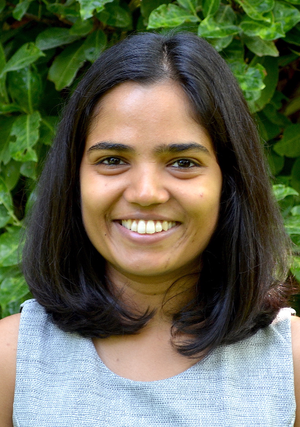
Asmita Bhandare
Panel: Pamela Gay
(Planetary Science Institute), Ananda Hota
(UM-DAE Centre for Excellence in Basic Sciences, Mumbai, India & RAD@home Astronomy Collaboratory, India), Marc Kuchner
(NASA), Molly Simon
(Arizona State University), Masayuki Tanaka
(National Astronomical Observatory of Japan)
Posters
-
GWitchHunters – The Citizens for the Improvement of Gravitational Wave Detectors
Francesco Di Renzo (University of Pisa and INFN section of Pisa), Massimiliano Razzano , Gary Hemming , Francesco Fidecaro , Stavros Katsanevas
Gravitational wave detectors are very sophisticated instruments devoted to the formidable task of measuring space-time deformations as small as a thousandth the size of the atomic nucleus, such as those produced by astrophysical phenomena like coalescence of compact stars or the Big Bang itself. This citizen science project aims at demystifying the detectors functioning and the work of the scientists to improve them. We present their data in the form of images and sounds, and we ask the citizens to identify relations between them or peculiar patterns in images and sounds. All of this is presented with the interface of the Zooniverse platform as a game for the citizens, which, playing with simple tasks, can give a significant contribution to better understand the detectors and improve them
-
How Citizen Scientists are Monitoring Global Meteor Shower Activity with ML Open Source Research
Siddha Ganju (Frontier Development Lab, SpaceML, Nvidia Corporation)
Citizen scientists have automated the Cameras for Allsky Meteor Surveillance (CAMS) data network, so data is automatically downloaded from the cameras, prepped for triangulation, and analyzed. Additionally, an ML algorithm replicates the scientists thought process to sift through the video captured each night to identify meteor showers with results published on the NASA CAMS Meteor Shower Portal. The open source portal not only aids in effective communication of ideas and results to a diverse audience but is a useful interactive educational tool used to explore meteor shower activity from the previous night globally and encourages citizen scientists to develop an interest in space science. Learn how to reuse the open source code for your datasets and explore meteor showers!
-
Solar Eclipse 2019: citizen science initiative to investigate GPS signals in Chile
Carla Hernández (Universidad de Santiago de Chile), Sebastián Pérez (Universidad de Santiago de Chile, Center for Interdisciplinary Research in Astrophysics and Space Exploration - CIRAS), Cristóbal Espinoza (Universidad de Santiago de Chile, CIRAS), Miguel Pino (Universidad de Santiago de Chile, CIRAS), Marina Stepanova (Universidad de Santiago de Chile, CIRAS), Roberto Bernal (Universidad de Santiago de Chile)
The solar eclipse in Chile 2019, was a perfect opportunity to invite the public to join a scientific investigation through a citizen science initiative. The aim was to gather data that would help us understand how changes in the illumination pattern affect our planet's ionosphere. Shadowing by the Moon is expected to produce deviations in the Global Positioning System (GPS) accuracy. Our initiative, named "Hago Ciencia", invited people to collect GPS data with their smartphones before, during, and after the eclipse. Participated approximately 5,000 people, providing more than 280,000 geolocation. We found evidence that the positioning accuracy worsened by several decades of meters during the passage of the Moon's shadow when compared to before and after the time of totality.
-
Zooniverse and IASC: citizen science at the service of the popularization of astronomy and in the se
Felipe Sérvulo Maciel Costa (ECIT Melquíades Vilar)
In times of remote education, astronomy education has also had to adapt.Today, there are citizen science projects that provide tools and resources to support astronomy education remotely, such as the Supernova Hunters and Planet Hunter Tess projects on the Zooniverse platform, as well as the International Astronomy Search Collaboration, an asteroid hunting project. In addition to contributing to astronomy education, such projects also allow citizen scientists and amateur astronomers to contribute to new discoveries of planets, supernovae, stars, and asteroids not yet discovered by the algorithms that scour the cosmos through large telescopes. Such initiatives also have the potential to contribute to the popularization of the field of astronomy and general interest in STEM




